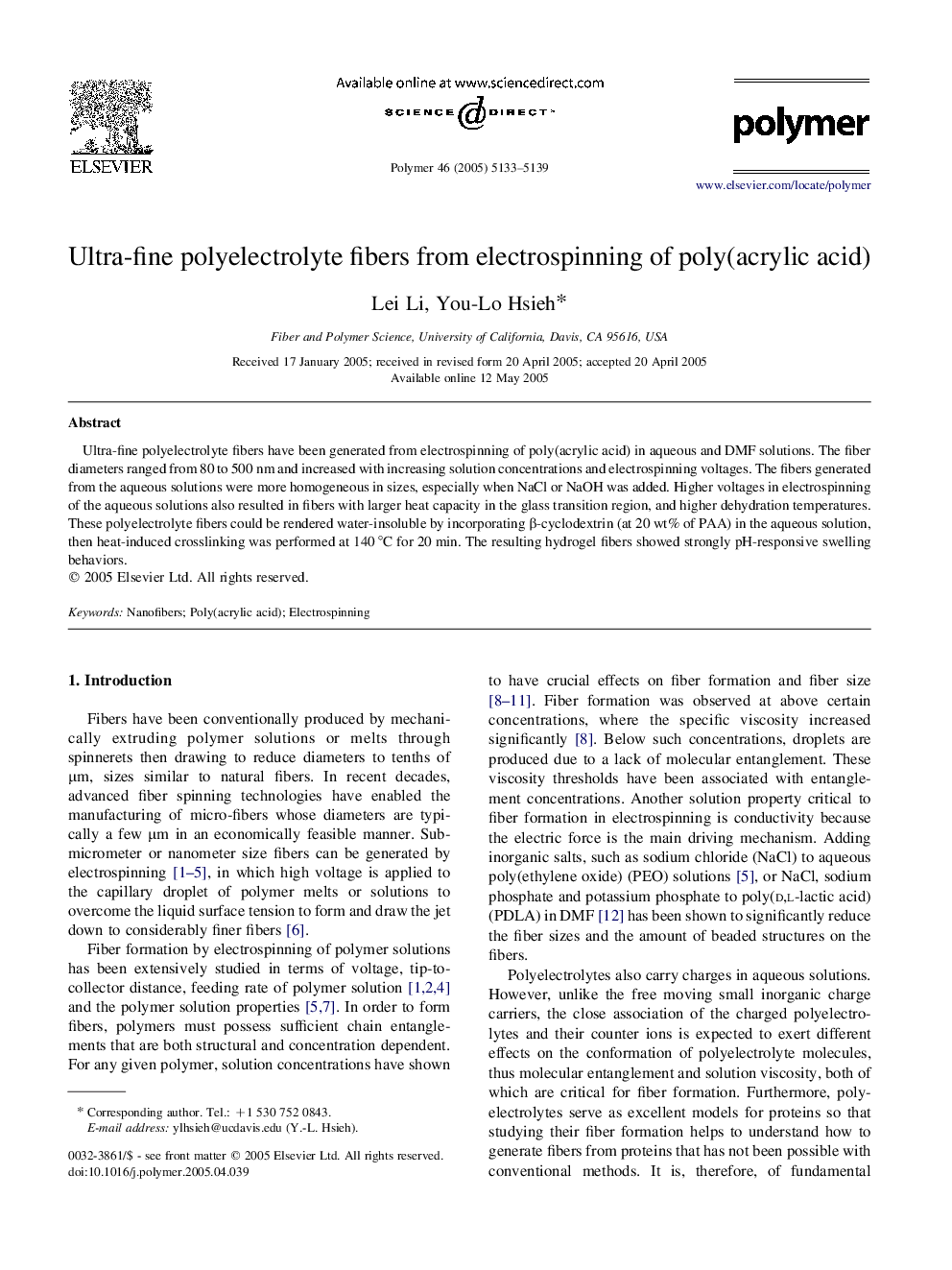| Article ID | Journal | Published Year | Pages | File Type |
|---|---|---|---|---|
| 5191095 | Polymer | 2005 | 7 Pages |
Abstract
Ultra-fine polyelectrolyte fibers have been generated from electrospinning of poly(acrylic acid) in aqueous and DMF solutions. The fiber diameters ranged from 80 to 500 nm and increased with increasing solution concentrations and electrospinning voltages. The fibers generated from the aqueous solutions were more homogeneous in sizes, especially when NaCl or NaOH was added. Higher voltages in electrospinning of the aqueous solutions also resulted in fibers with larger heat capacity in the glass transition region, and higher dehydration temperatures. These polyelectrolyte fibers could be rendered water-insoluble by incorporating β-cyclodextrin (at 20 wt% of PAA) in the aqueous solution, then heat-induced crosslinking was performed at 140 °C for 20 min. The resulting hydrogel fibers showed strongly pH-responsive swelling behaviors.
Related Topics
Physical Sciences and Engineering
Chemistry
Organic Chemistry
Authors
Lei Li, You-Lo Hsieh,
